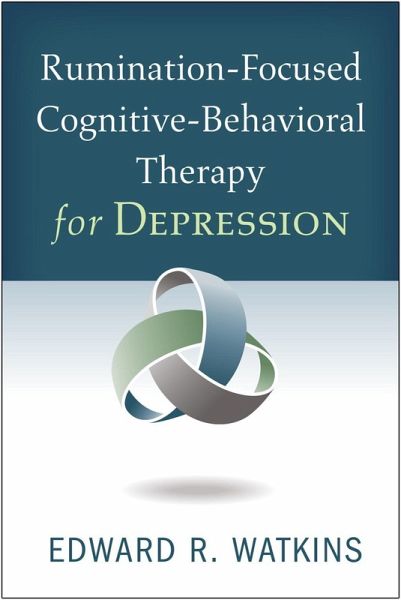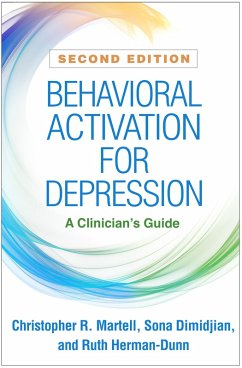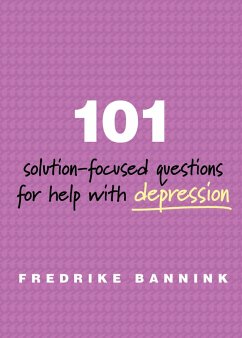
Rumination-Focused Cognitive-Behavioral Therapy for Depression (eBook, ePUB)
Versandkostenfrei!
Sofort per Download lieferbar
30,95 €
inkl. MwSt.
Weitere Ausgaben:

PAYBACK Punkte
15 °P sammeln!
Negative rumination plays a key role in the onset and maintenance of depression and anxiety--and targeting this persistent mental habit in treatment can lead to better client outcomes and reduced residual symptoms. Rumination-focused cognitive-behavioral therapy (RFCBT) for depression combines carefully adapted elements of CBT with imagery, visualization, and compassion-based techniques. Leading clinician-researcher Edward R. Watkins provides everything needed to implement this innovative, empirically supported 12-session approach, including sample dialogues, a chapter-length case example, ref...
Negative rumination plays a key role in the onset and maintenance of depression and anxiety--and targeting this persistent mental habit in treatment can lead to better client outcomes and reduced residual symptoms. Rumination-focused cognitive-behavioral therapy (RFCBT) for depression combines carefully adapted elements of CBT with imagery, visualization, and compassion-based techniques. Leading clinician-researcher Edward R. Watkins provides everything needed to implement this innovative, empirically supported 12-session approach, including sample dialogues, a chapter-length case example, reflections and learning exercises for therapists, and 10 reproducible client handouts. Purchasers get access to a Web page where they can download and print the reproducible materials in a convenient 8 1/2" x 11" size.
Dieser Download kann aus rechtlichen Gründen nur mit Rechnungsadresse in A, D ausgeliefert werden.













